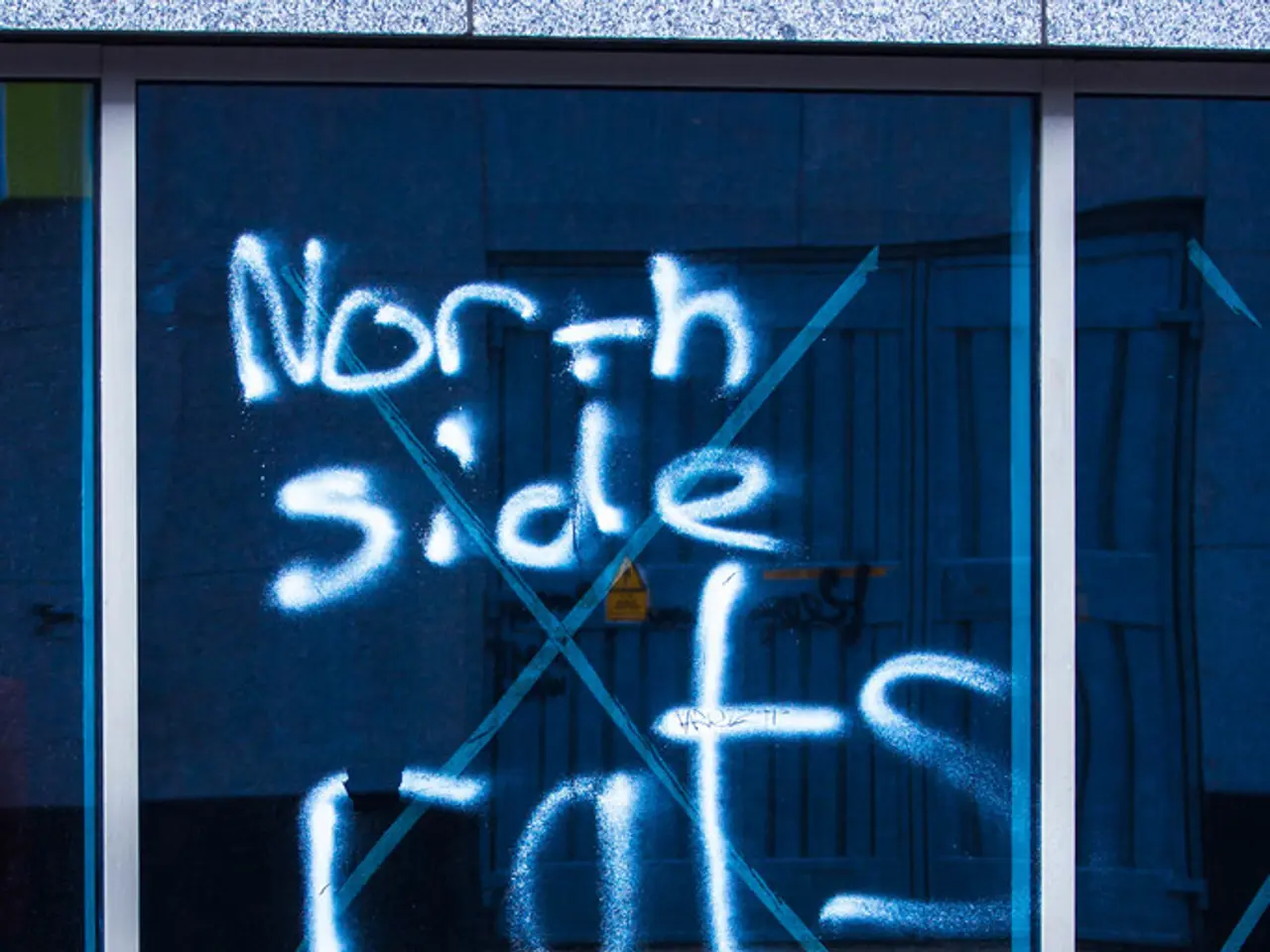Expanding border controls in a tightening immigration strategy, announced by Germany.
In a significant shift towards enhanced border security, Germany has extended and intensified its border controls with all nine neighbouring countries, including fixed border posts at major crossings with Belgium, the Netherlands, Poland, Austria, and the Czech Republic [1][4]. This comprehensive migration crackdown, led by Interior Minister Alexander Dobrindt, aims to curb illegal immigration and bolster national security [1][2].
The tightened border checks have resulted in a considerable increase in rejections, with over 2,000 rejections reported at Germany's border with France alone [6]. From May 8 to July 31, 9,254 people were turned back at German land borders [6]. The majority of rejections were from Afghanistan, followed by Algeria, Eritrea, and Somalia [6].
Amidst this crackdown, Germany has resumed sending rejected asylum seekers with criminal records back to Afghanistan, including Taliban-controlled areas, with 81 deportations reported in recent months [2]. Deportations to Syria are also being planned as part of the increased enforcement [1][3]. However, these actions have attracted criticism from human rights groups like Amnesty International, which warn about the catastrophic security situation in Afghanistan and risks such as unlawful killings and torture for returnees [2].
Chancellor Friedrich Merz, who vowed a tough crackdown on irregular immigration, has also announced plans to continue maintaining border controls beyond the September 15th deadline [5]. Dobrindt, the Interior Minister, stated that the Afghanistan deportations "cannot remain a one-off measure" [2]. He also mentioned plans for deportation flights to Syria [3].
The far-right Alternative for Germany (AfD) party, which scored a record 20 percent in the February election, has supported these measures [7]. However, opposition parties and civil society groups criticize these controls as illegal and call for their termination [5].
Financially, these border controls have cost Germany over €80 million, reflecting their scale and intensity [5]. Germany's conservative government has also moved to reject most asylum seekers, a step that sparked an outcry from human rights groups [1].
It is important to note that members of Europe's Schengen area can temporarily reintroduce border controls for up to two years in response to serious threats such as terrorism or large-scale unauthorized migration [8]. Germany is in agreement with its European partners that maintaining border controls is necessary until the EU external border protection system is fully operational [9].
This shift towards stricter border controls and increased deportations has been fueled by a series of deadly attacks blamed on asylum seekers and other foreign nationals during the campaign for the February election [10]. The recent developments come in a context where an Islamist-led offensive toppled longtime Syrian ruler Bashar al-Assad in December [11].
Sources:
[1] The Guardian: "Germany to extend border controls beyond September deadline" (https://www.theguardian.com/world/2022/may/11/germany-to-extend-border-controls-beyond-september-deadline)
[2] Reuters: "Germany to deport rejected asylum seekers with criminal records to Afghanistan" (https://www.reuters.com/world/europe/germany-deport-rejected-asylum-seekers-criminal-records-afghanistan-2022-06-13/)
[3] Deutsche Welle: "Germany plans deportation flights to Syria" (https://www.dw.com/en/germany-plans-deportation-flights-to-syria/a-61365250)
[4] The Local: "Germany to deploy 14,000 federal police at borders daily" (https://www.thelocal.de/20220613/germany-to-deploy-14000-federal-police-at-borders-daily)
[5] Deutsche Welle: "Germany's border crackdown costs €80 million" (https://www.dw.com/en/germanys-border-crackdown-costs-e80-million/a-61416121)
[6] The Local: "Over 2,000 migrants rejected at German-French border" (https://www.thelocal.de/20220701/over-2000-migrants-rejected-at-german-french-border)
[7] The New York Times: "In Germany, AfD Party Wins Big in State Election" (https://www.nytimes.com/2022/02/14/world/europe/germany-election-afd.html)
[8] European Commission: "Temporary reintroduction of internal border controls" (https://ec.europa.eu/home-affairs/what-we-do/policies/borders-and-visas/temporary-reintroduction-internal-border-controls_en)
[9] Deutsche Welle: "Germany agrees with EU partners to maintain border controls" (https://www.dw.com/en/germany-agrees-with-eu-partners-to-maintain-border-controls/a-61365251)
[10] The Local: "Germany's conservative Merz vows tough crackdown on irregular immigration" (https://www.thelocal.de/20220511/germanys-conservative-merz-vows-tough-crackdown-on-irregular-immigration)
[11] The New York Times: "Syria's Assad Is Ousted After Decades in Power" (https://www.nytimes.com/2021/12/11/world/middleeast/syria-assad-ousted.html)
The increased border checks have led to a surge in rejections, with many applicants from countries embroiled in war and conflicts, such as Afghanistan and Syria, being turned away [6]. The Germany government's tough stance on immigration and crime, as seen in deportations to Taliban-controlled Afghanistan and planned deportations to Syria [2][3], has elicited human rights concerns due to the dangerous situation in these countries [2]. Meanwhile, ongoing war and conflicts elsewhere in the world, like the ousting of Bashar Al-Assad in Syria [11], continue to contribute to migration, making the politics of immigration and national security a general news topic of interest [10].







